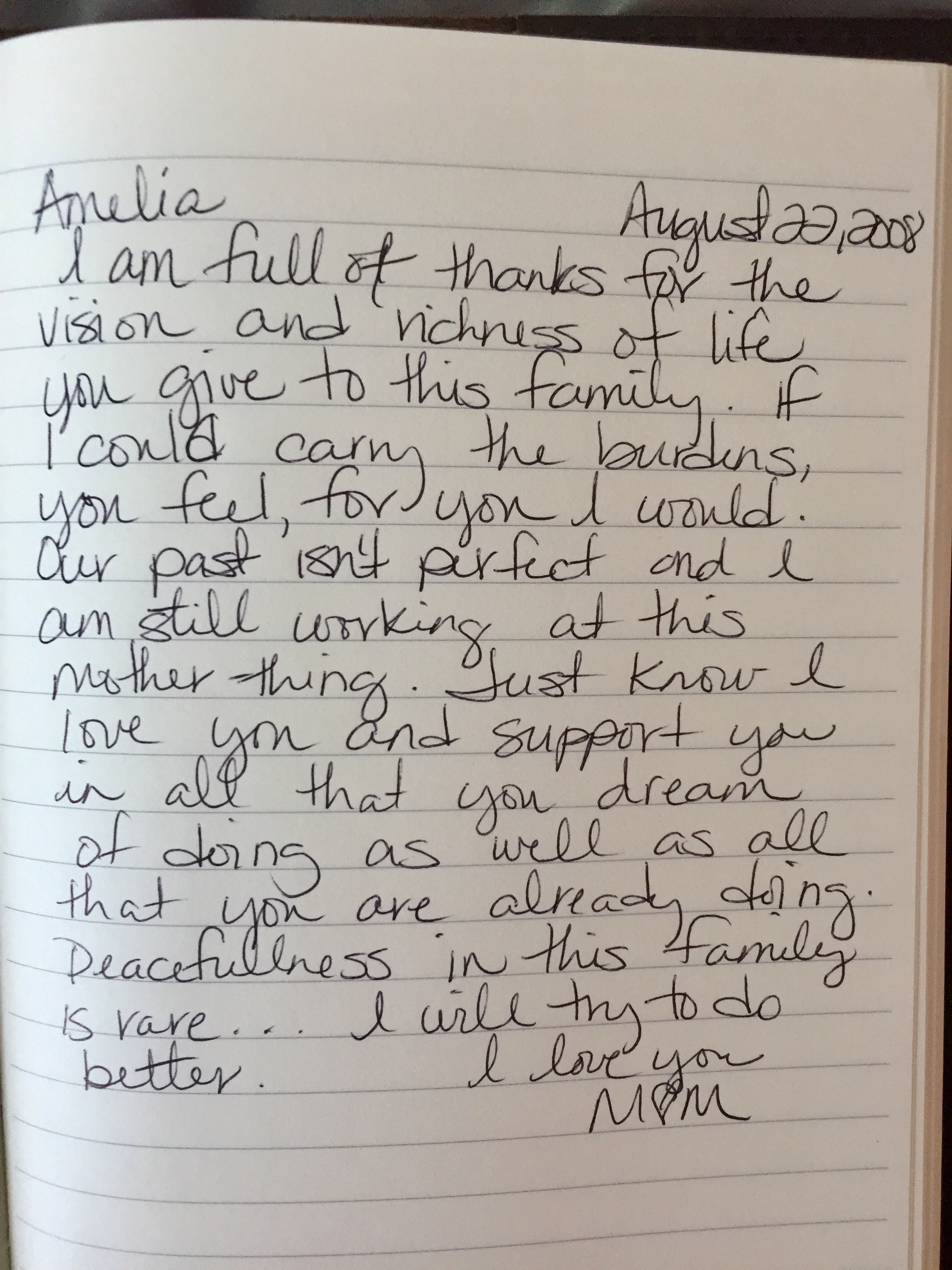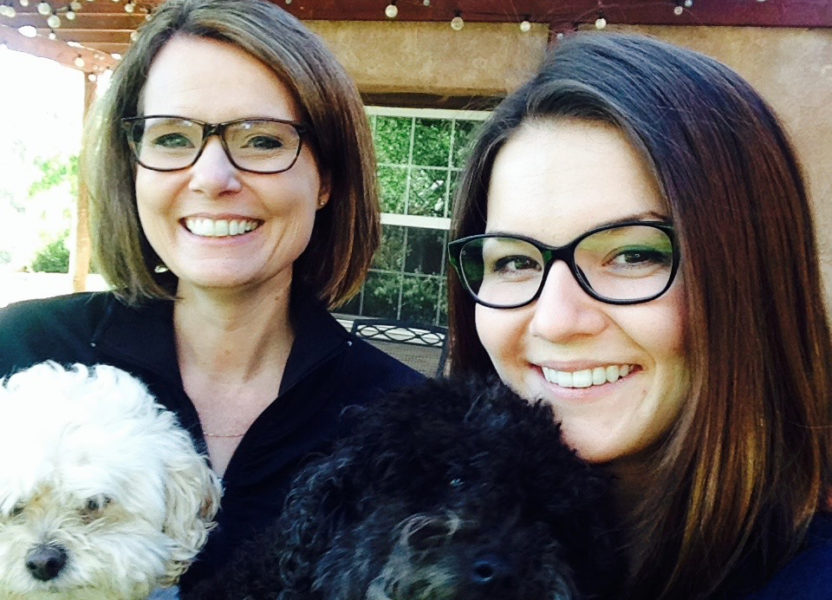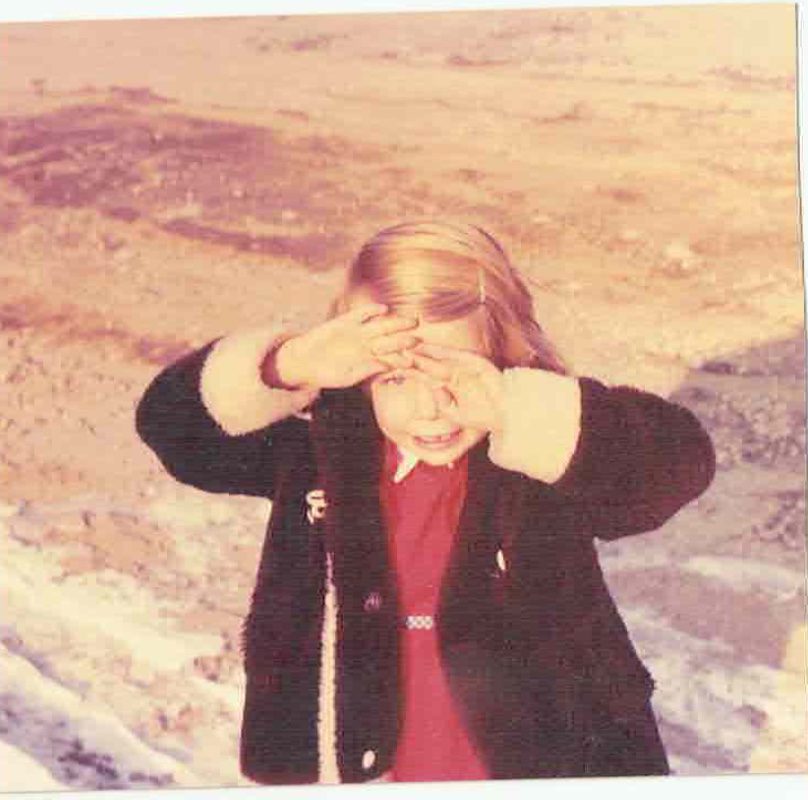Carrying the Torch
They say the middle child causes the mother the most grief. I’m not sure that’s true, but I know my mom struggled with me through a lot. We struggled together, for each other and over each other. As I got older, we became best friends, equals, and mirrors of each other.
The struggle, for my mom, began when she was pregnant with me (when she was at my current age), and battling pretty severe gestational diabetes throughout. Then she labored to have a 10 pound 3 ounce baby. You can see her exhaustion in the first photos of us together. At first we didn’t want much to do with each other–me with a broken collarbone and her in recovery. When I was really young, I remember her doting. She ran a daycare business from our home, so I ran with the rest of the three year olds. She was very talented at getting us all to behave, and always managed to get us all in a good routine with perfectly synchronized naps. I remember her lovingly rocking the babies who came to her during the days while their parents worked, the floor just littered with Cheerios. When I started kindergarten, I remember her laying out my clothes for me the night before. She let me sleep late, and always woke me up with a spoon full of breakfast just in front of my face. She fussed over birthday parties with cute details, elaborate cakes, and all the neighborhood kids gathered to play. She loved shopping for school clothes, and would come home with all my outfits she’d excitedly have me try on. She knew all my favorite things–my favorite colors and latest fixations– and appealed to them whenever she could.
When my parents split, after my dad came out as gay, she went about everything with such grace, and mercy. She wanted her daughters to grow up with as much love as possible, and never sought to keep our dad from us. She remained close friends with him always. When his mother passed away that same year, she insisted on doing his mother’s makeup as she would’ve wanted it, so she looked perfect and true to self for the open casket. She made sure we always had holidays together as one enormous, mixed, complicated, and loving family. Everyone was included, and made to feel valued.
When I was seven, she moved to Seattle with my sisters after she had remarried. The reasons were complicated, I think, but she unselfishly had me stay with my dad in California, because I was always a daddy’s girl. The distance tore her to pieces. For years, the guilt and depression over it was palpable whenever I visited her. She was flustered, anxious, stifled. We didn’t live together anymore, so we didn’t have that kind of comfortable understanding anymore, the kind people have when they share a home. I wasn’t integrated into the routine at her house, and we were estranged. She always made sure to check in on what I needed, though, in literal and physical terms. She mailed me care packages, boxes and boxes of things girls need.
During those years, I saw her struggle. She battled depression in a very real way. She cried a lot, in dimly lit rooms. We couldn’t talk about heavy or serious things together. She was apparently very unhappy. I was clumsy with approaching her and her emotions, fumbling without tact at ways to talk to her. I believe she thought that I resented her, but I never did. I only flustered at the emotional distance between us. When she wasn’t around, I worshipped her. She was the coolest, most beautiful, badass mom, and that’s what my friends all knew and heard of her. When we visited, I’d steal a thing or two from her closet or suitcase so I could cling on to the smell of her as I fell asleep.
Still though, despite years of distance, she always did her best to be there for me, especially as years went on and she found her footing on her own again. Feeling hormonal, I’d call her and blubber, and she always had strong and sensible advice how to grow into my own self. When I became very sick with a systemic staph infection as a teenager, she drove a long distance with a toddler to show up at my bedside, toting a cooler full of drinks and lots of snacks and motherly insight on how to heal my broken body. When I graduated from college or reached any other accomplishment through school, she always made sure I knew how proud she was. When I got married, she fussed and fussed over making everything perfect for me (even though the marriage blew up in my face not too long after). When I had my heart broken, she uniquely knew how to take my mind off of things.
Three years ago, I’d just graduated from college and I decided it was time to heal our strained dynamic in every possible way, and I moved to be closer to her in Utah. For the first time since the late 90s, we’d live in the same state, just 15 minutes away from each other. We would go to lunch on Wednesdays, which was such a privilege and joy to both of us–getting to have that closeness. When she was tragically widowed, I was the person she picked up the phone to call first. I lay with her on her front lawn, and held her hands as we both cried, telling her over and over, “you’re so beautiful, you’re so beautiful.” I helped her plan the funeral. I watched her handle probate with grace, and honor him by making packages full of mementoes for each of his children. As she gave the eulogy, she focused entirely on making sure his loved ones knew what they had meant to him, rather than focusing on her own sadness. She was this startling and ethereal pillar of strength.
I moved in with her because I couldn’t bear the thought of her coming home to an empty house. I watched her transform through grief. I watched her grace and her intense feeling and her heartbreak warp her, forge her, and then I had the privilege of watching that metamorphosis result in–none other than–a shining resilience–a resilience still weighted by sadness, but her choice to overcome prevailed. I was thrilled to see her come up the driveway with her beautiful new white Ducati Monster, because to me it represented her choice to come into her own again, and take her life back from oppressive sadness and turn it instead, into a new adventure. I watched her become a bride when she chose to love again, to not live in total despair or heartbreak anymore. I helped her choose her wedding dress, I arranged her bridal bouquet, and I gleamed with pride, returning the honor. I got to be with her to watch her welcome her grandson into the world.
I got to be the one Karl called after the accident, to be his friend through his loss, through funeral planning. I knew what she would have wanted of her arrangements because I had watched her do it herself. I suppose that was the cue, the turning point, where part of her legacy became mine to carry forward. I tell myself: “you know how to do this, because she’s been teaching you your entire life how to cope with her absence, how to honor family, how to care for others, how to sense their needs, how to move forward with resilience and with grace.”
Her absence is an extremely physical and existential one to me. That day she was widowed, as we lay on the grass together in the summer heat, she kept looking at her trembling hands and saying that she couldn’t believe how physical the grief was. And now, whenever I sense her the most, when I’m somewhere I’d know she’d want to be and with the people she’d want to be with, my hands become pins and needles, sometimes entirely numb. Somehow I find that symbolic. I have time on this physical earth yet, to experience and smell and touch and make change.
Everything I am good at, I’m good at because of the traits I got from her. When I falter and as life tests me, I see things that she was markedly better at than I am (she didn’t believe in burning bridges, and she prioritized peacemaking over her own grudges or hurt). I run through the inventory of all of her trying life experiences, some of which I know firsthand, and I wonder at her fortitude. I feel her telling me that frailty simply is not an option. She went through too much without breaking.
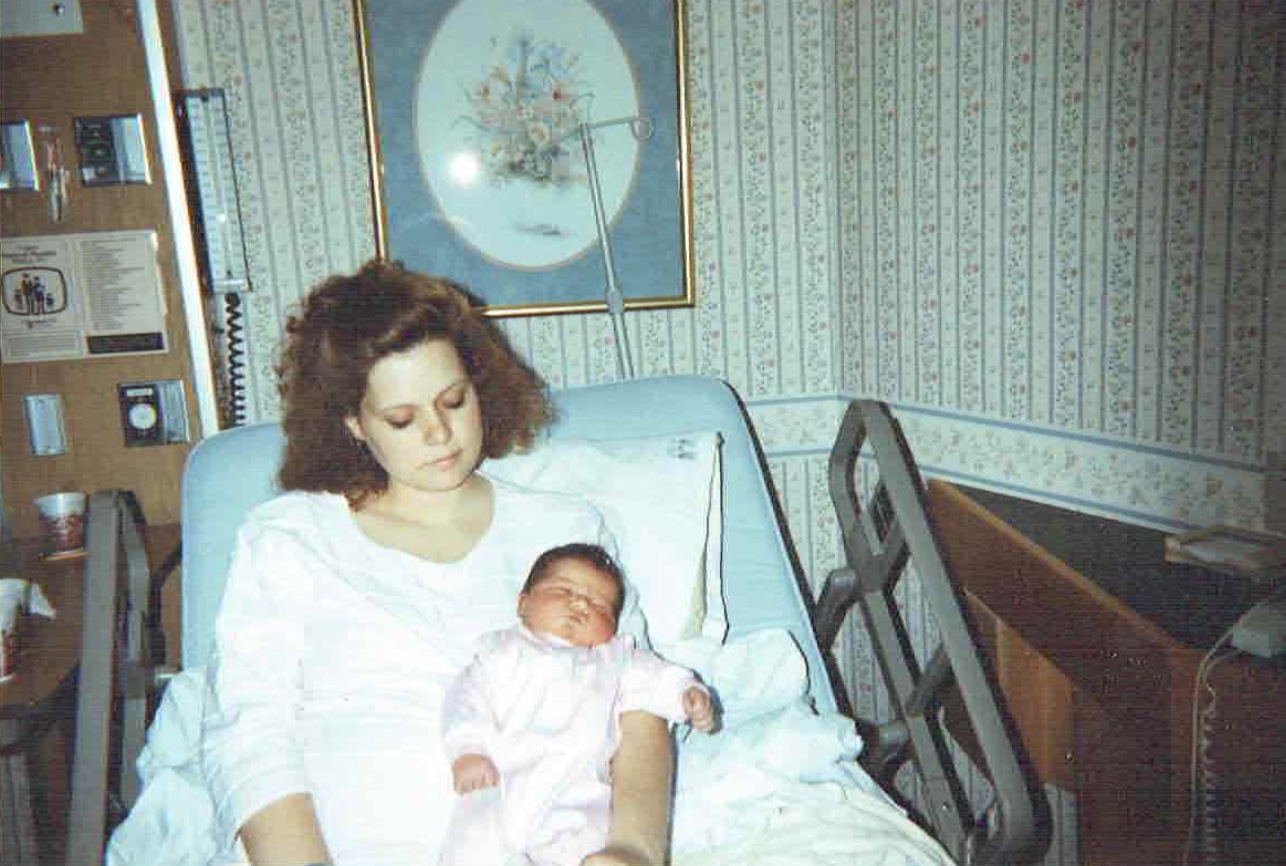
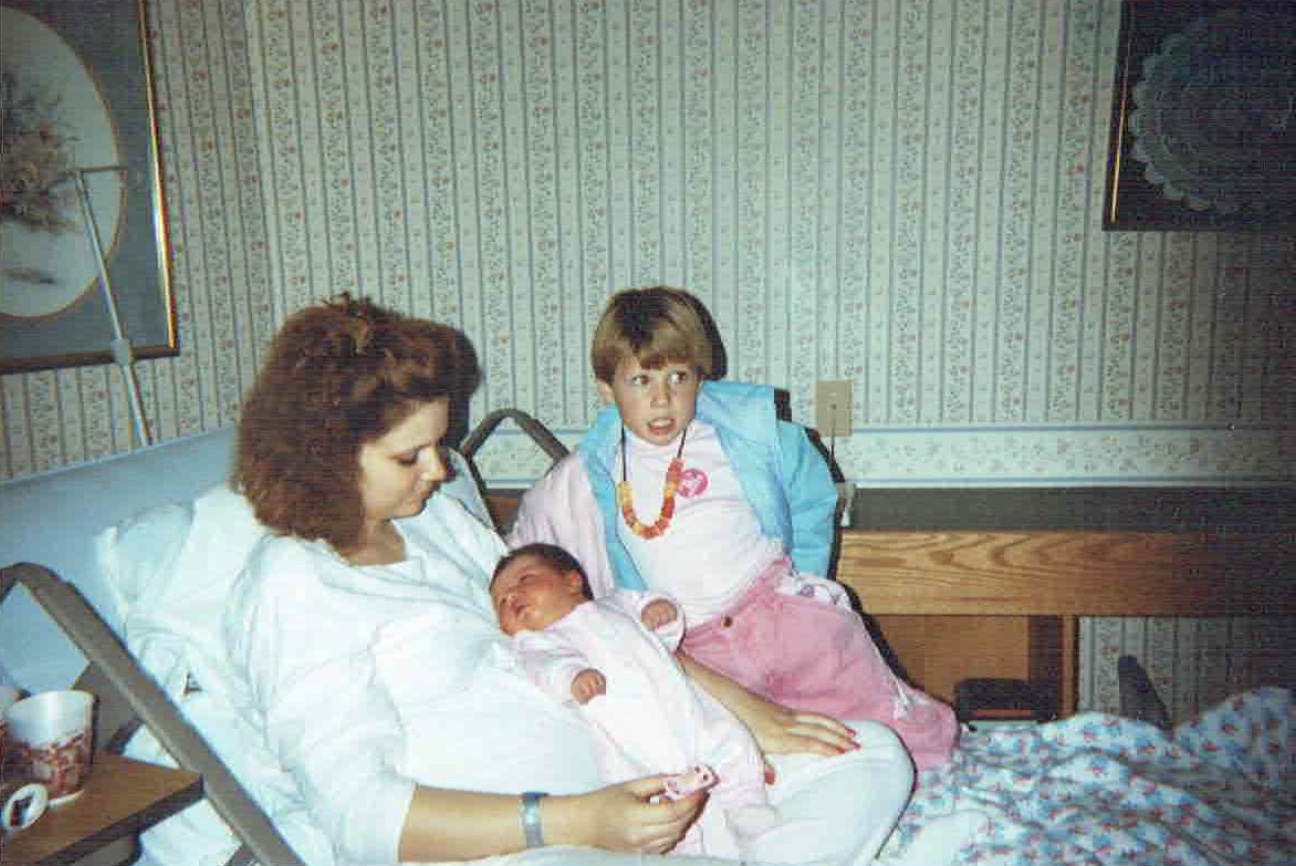
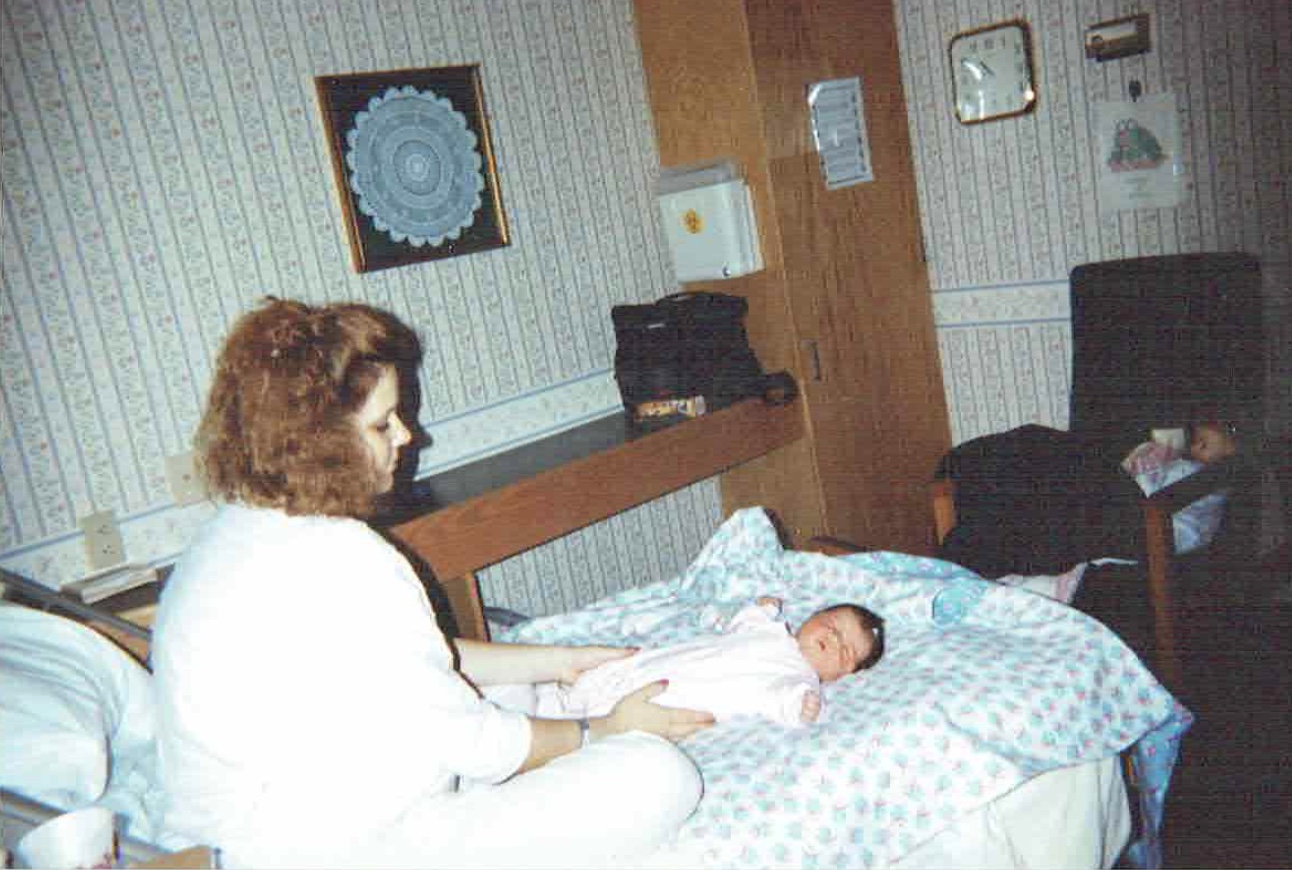

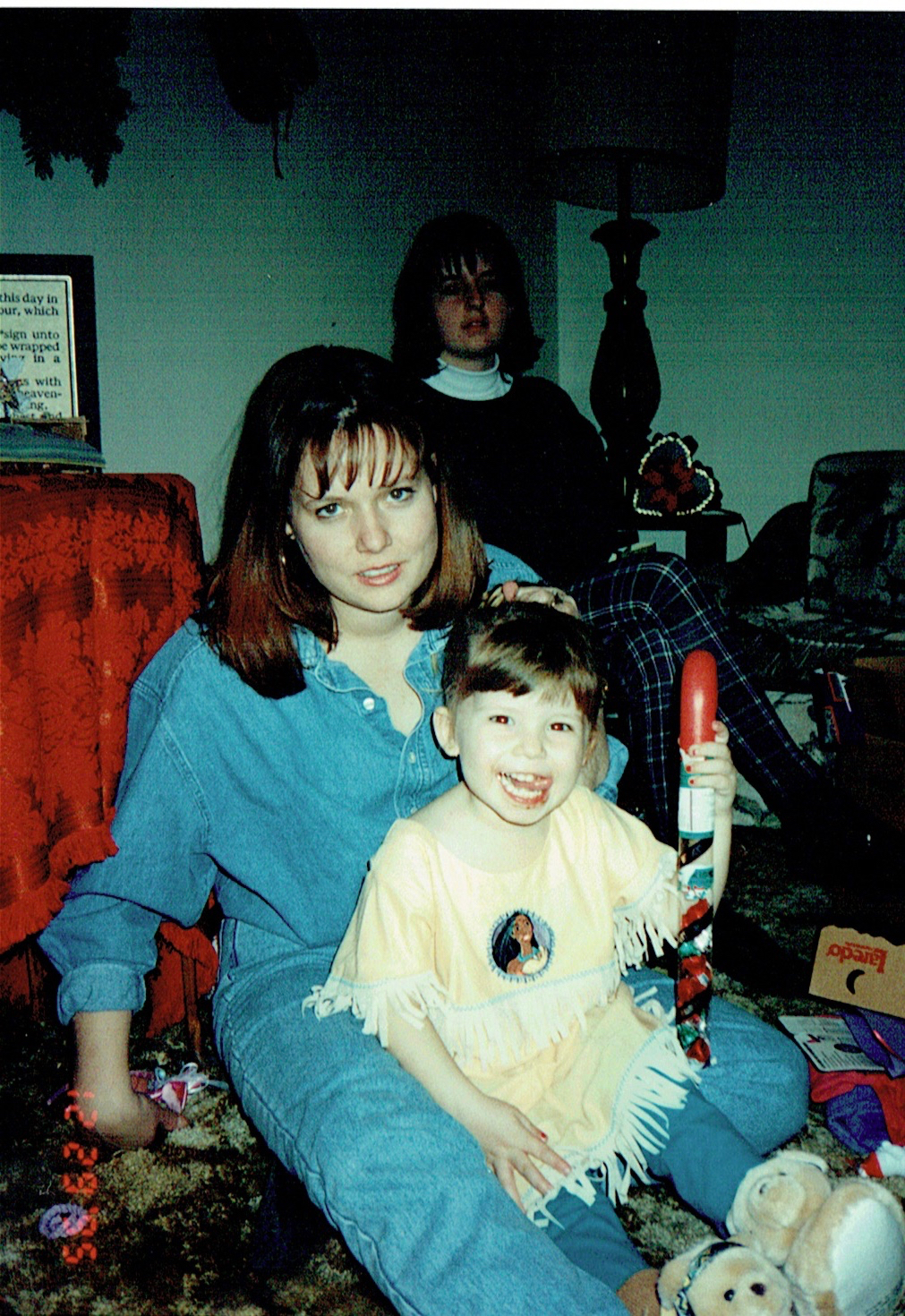
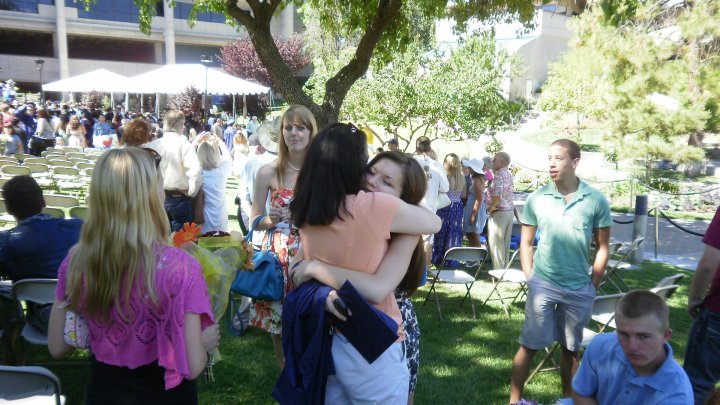
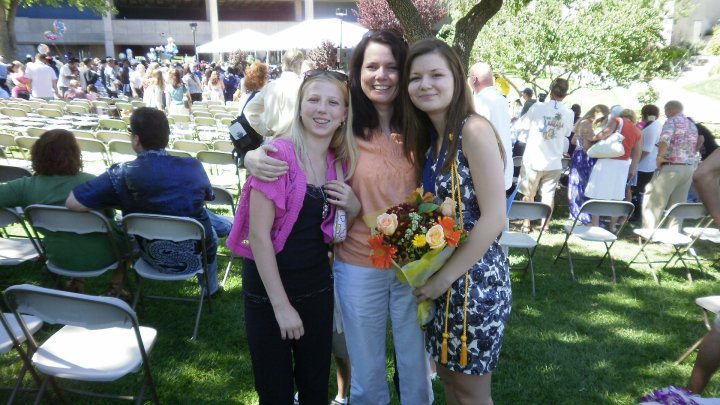
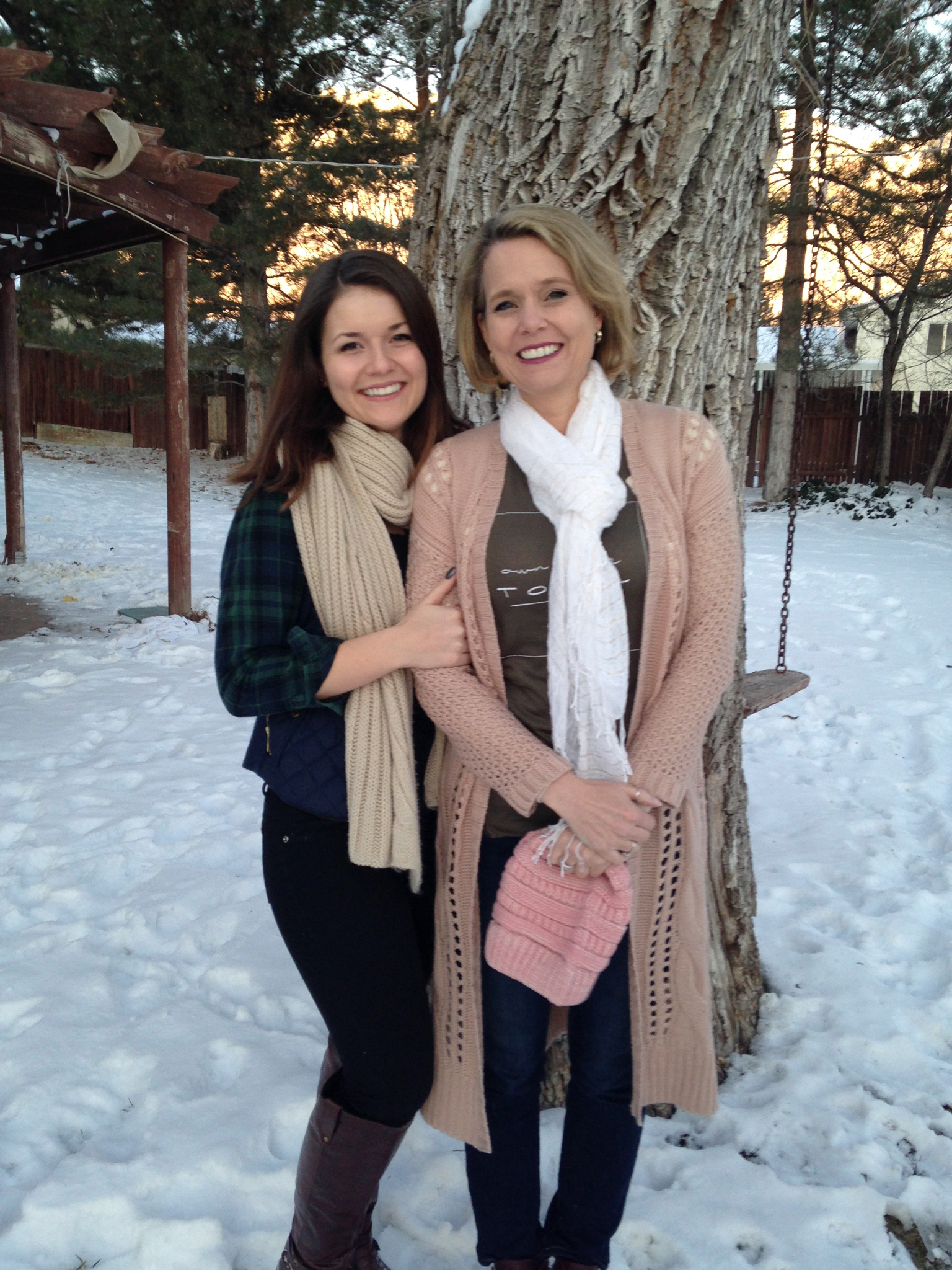

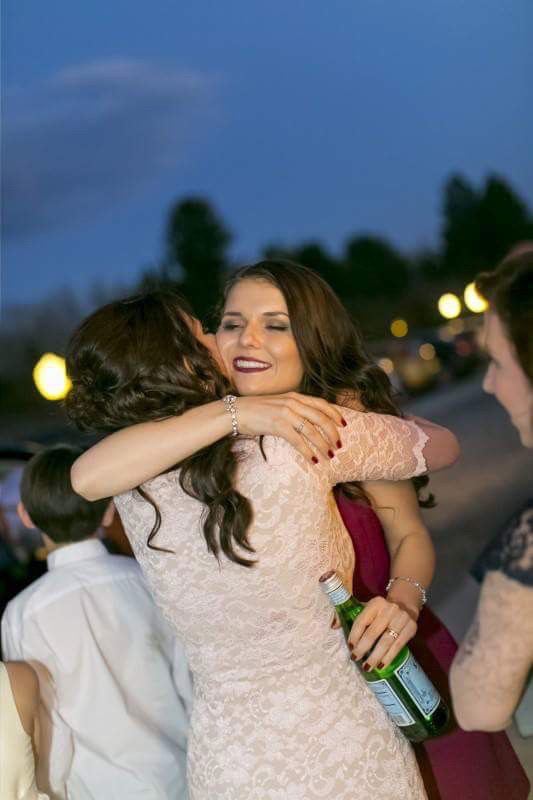

We went to get french food in Park City on my 23rd birthday.

We went to get diner food after the funeral of one of my hospice patients.
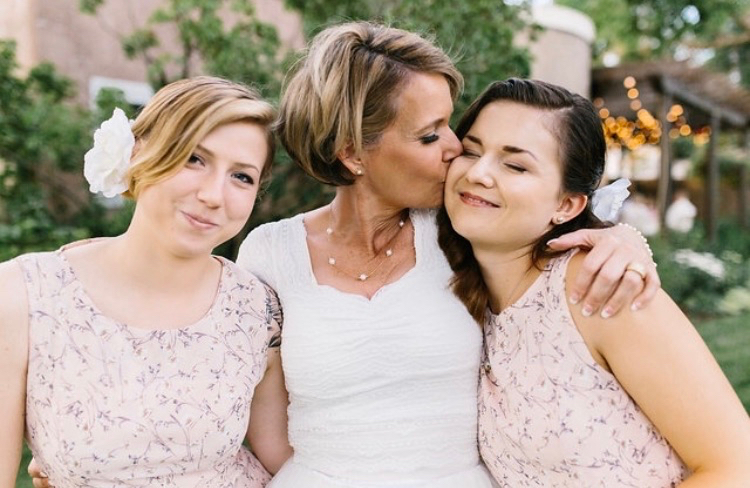
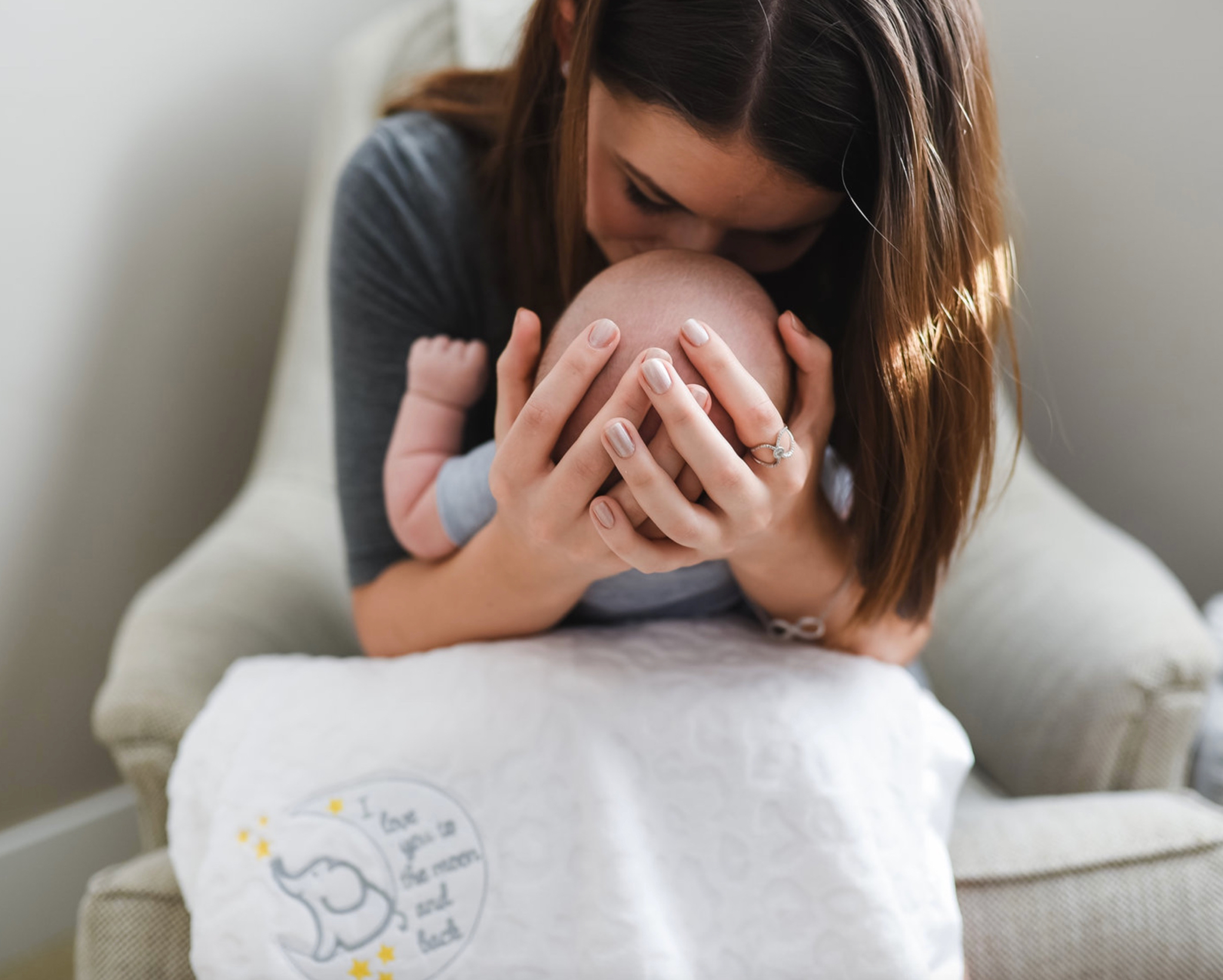
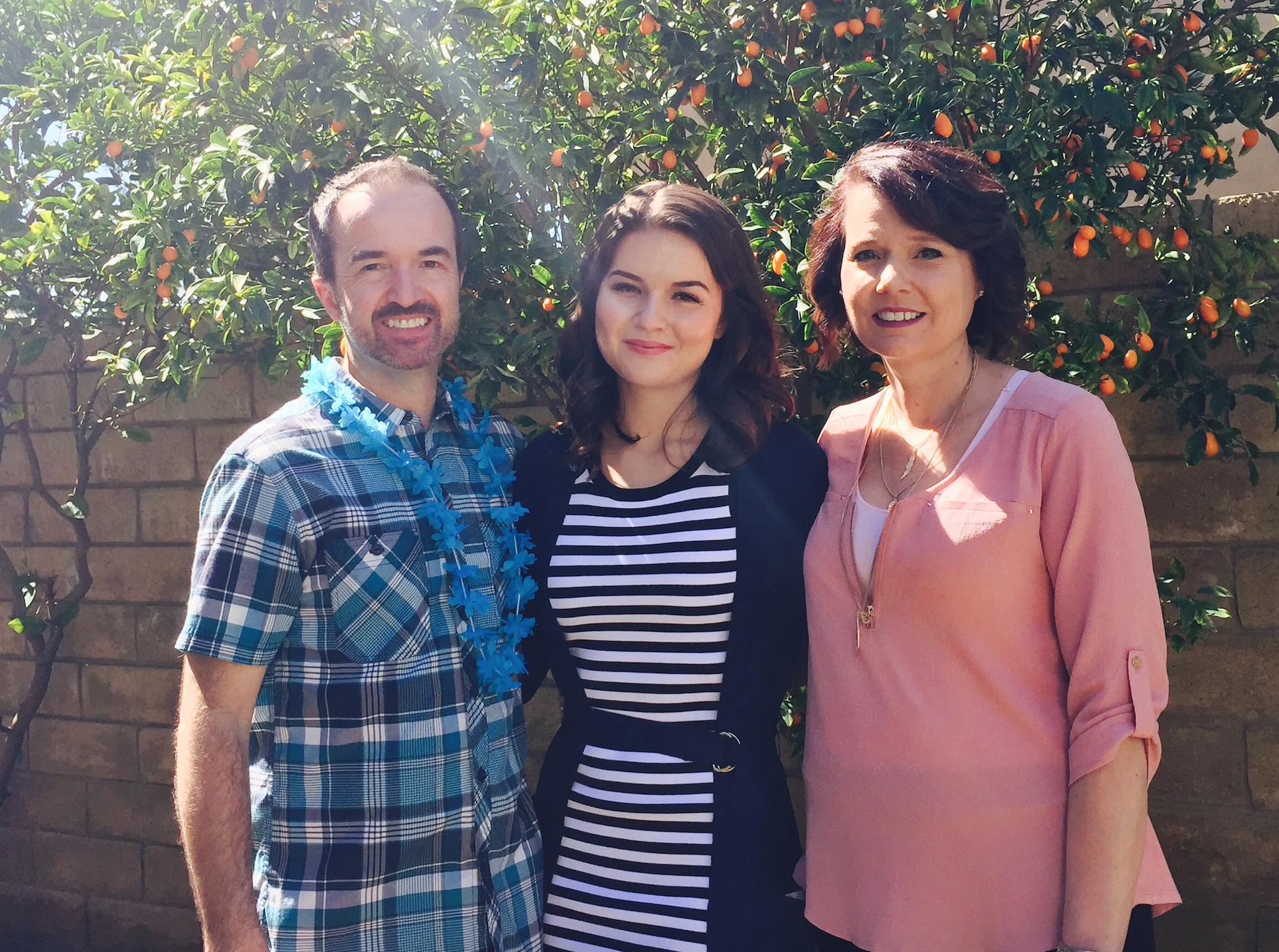
The last photo I ever got with my mom and dad
